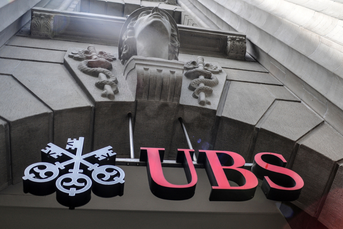Money market funds to avoid new ‘swing pricing’ rules

The SEC is due to finalize its rules Wednesday with Wall Street now expecting a victory on a key component.
Money-market funds are set for a reprieve on “swing pricing” as Wall Street’s top regulator wraps up rules aimed at stemming rapid outflows during times of financial stress.
The Securities and Exchange Commission still intends to impose other fees that will affect parts of the $5.5 trillion industry, according to a person familiar with the matter who asked not to be identified discussing the plans ahead of the meeting.
The regulator’s rules are meant to discourage runs like the one in March 2020 and shield remaining shareholders from costs tied to the high level of redemptions. After the pandemic’s onset roiled markets, the Federal Reserve was forced to step in to rescue money-market funds for the second time in 12 years, leading to calls for the SEC to impose tougher regulations.
An SEC spokesman declined to comment on the plans. The agency is scheduled to hold a meeting to finalize the rules at 10 a.m. in Washington on Wednesday.
The reprieve on the swing-pricing requirement would mark a significant victory for the likes of JPMorgan Chase & Co.’s asset management unit, State Street Corp. and Federated Hermes Inc., which have opposed the measure. Among the complaints were that swing pricing would drive up investor costs and lead to a significant decrease in institutional money-market funds’ assets.
Swing pricing is essentially a fee imposed on investors redeeming shares in money-market funds by adjusting a fund’s net asset value. Mass redemptions can increase costs to a fund and dilute remaining shareholders’ assets.
The mechanism is widely used in Europe. The SEC proposal in December 2021 would have made the measure mandatory, specifically for institutional prime and institutional tax-exempt money-market funds.
The final rule could increase the required amounts of highly liquid assets that funds must hold on a daily and weekly basis, based on the proposal. In return, industry players hope the regulator will remove links between redemption fees and liquidity levels first.
Learn more about reprints and licensing for this article.








